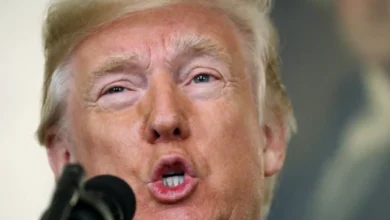Challenges for Biden and Trump’s Comeback

Incumbent US President Joe Biden recently faced one of his most challenging moments on the political stage. In a debate against his formidable opponent, Donald Trump, Biden’s age seemed to catch up with him in a way that was unmistakable to tens of millions of viewers. The spectacle of this showdown highlighted not only the intense scrutiny politicians endure but also the merciless nature of public opinion and media.
Biden’s struggle during the debate was a stark reminder of how age can betray even the most seasoned leaders at critical junctures. In this highly anticipated and widely watched event, Biden failed to perform convincingly both as an attacker and a defender. After the debate, Biden admitted his bad performance. He appeared unable to maintain the composure and sharpness that are crucial in such high-stakes encounters. This public faltering transformed what might have been seen as a minor setback into a perceived catastrophe.
In this high-stakes environment, the American electorate faces a crucial choice. Will they opt for continuity with Biden, despite the challenges of his age and performance, or will they take a gamble on Trump, with all the unpredictability that entails? The outcome of this decision will reverberate far beyond the borders of the USA, influencing the course of international relations for years to come
The modern political landscape is unforgiving, especially under the relentless spotlight of social media, where commentators and critics can be particularly harsh. The slightest sign of weakness is often amplified, with slanderous and wolfish attacks that can sway public opinion dramatically. This environment is particularly unforgiving for a president seeking re-election, as any perceived decline in capability can have dire consequences for his campaign.
Within the Democratic Party, there is growing concern about Biden’s ability to lead the charge into the next election. Prominent voices, including The New York Times, have suggested that Biden should consider stepping aside. This sentiment has been echoed by various party members who fear that his continued presence might lead to an unavoidable defeat. However, replacing a sitting president in the middle of a campaign is not a simple task. It involves complex political manoeuvres and would require Biden’s own agreement to step down— a challenging prospect for any politician.
Jill Biden, the president’s wife, has been seen by some as a potential influencer who might persuade her husband to make this tough decision for the greater good of the party and the country. Similarly, former President Barack Obama is also expected to play a crucial role in guiding Biden through this difficult period.
Convincing a lifelong politician to retire is no easy feat. The allure of power and the prestige of office are hard to relinquish, especially for someone who has spent decades in public service, culminating in the presidency. The psychological attachment to power is profound, making the prospect of stepping down akin to accepting defeat. This was exemplified in an anecdote where a wise politician, despite his advanced age, could not easily detach himself from the presidential palace- a symbol of his enduring connection to power.
The recent debate not only highlighted Biden’s personal challenges but also underscored the broader issues facing the USA. In an era of rapid technological advancements and geopolitical shifts, the country appears to be struggling to put forth a younger, dynamic candidate for the highest office. This has led to deeper divisions within the nation and increased uncertainty on the global stage.
The potential re-election of Trump adds another layer of complexity to this scenario. Known for his unpredictable policies and unorthodox approach, Trump represents a significant departure from traditional political norms. His return to the White House would likely exacerbate existing tensions both domestically and internationally. Allies and adversaries alike are wary of his volatile leadership style, which contrasts sharply with Biden’s institutional approach.
The stakes in the upcoming election are incredibly high, not just for the USA but for the world at large. Trump’s potential victory raises questions about the USA’s role in global affairs, particularly concerning relations with Russia and China. Trump’s perceived lack of seriousness about the “Russian threat” and his focus on China as the primary adversary suggest a significant shift in US foreign policy priorities.
In Europe, there is widespread concern about the implications of a Trump Presidency. Leaders worry that Trump’s deal-making mentality might lead to compromises that could undermine European security, particularly in the face of Russian aggression. The fear of a repeat of the appeasement policies of the past looms large, with many drawing parallels to the pre-World War II era.
In the Middle East, the situation remains volatile with ongoing conflicts in Gaza and the potential for a wider war involving Lebanon. The prospect of a Trump-led Administration complicates efforts to achieve a lasting peace, particularly given his controversial decision to assassinate Iranian General Qassem Soleimani. Negotiating with Iran under a Trump Presidency would likely be fraught with difficulties, casting a shadow over any potential nuclear agreement.
As the 2024 election approaches, the political landscape is fraught with uncertainty. Biden’s apparent vulnerability and the prospect of Trump’s return to power have created a highly charged atmosphere. The decisions made in the coming months will not only shape the future of American politics but also have far-reaching implications for global stability and security.
In this high-stakes environment, the American electorate faces a crucial choice. Will they opt for continuity with Biden, despite the challenges of his age and performance, or will they take a gamble on Trump, with all the unpredictability that entails? The outcome of this decision will reverberate far beyond the borders of the USA, influencing the course of international relations for years to come.
Source link



